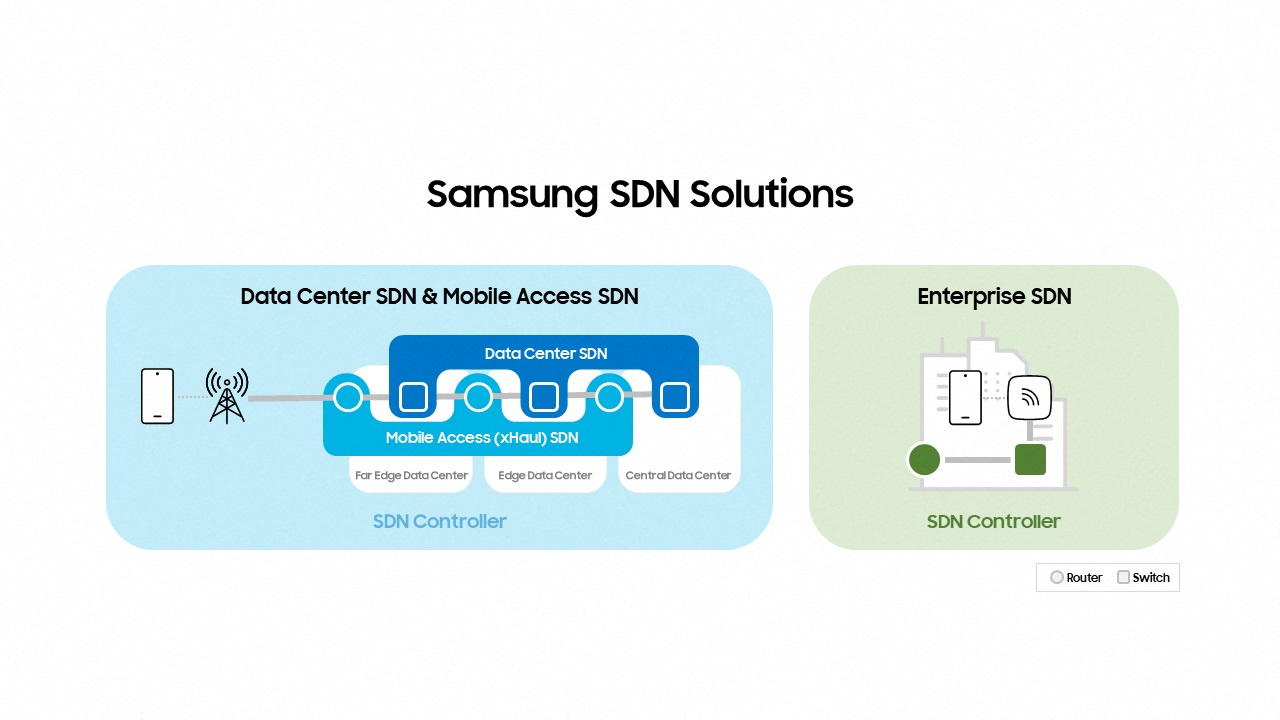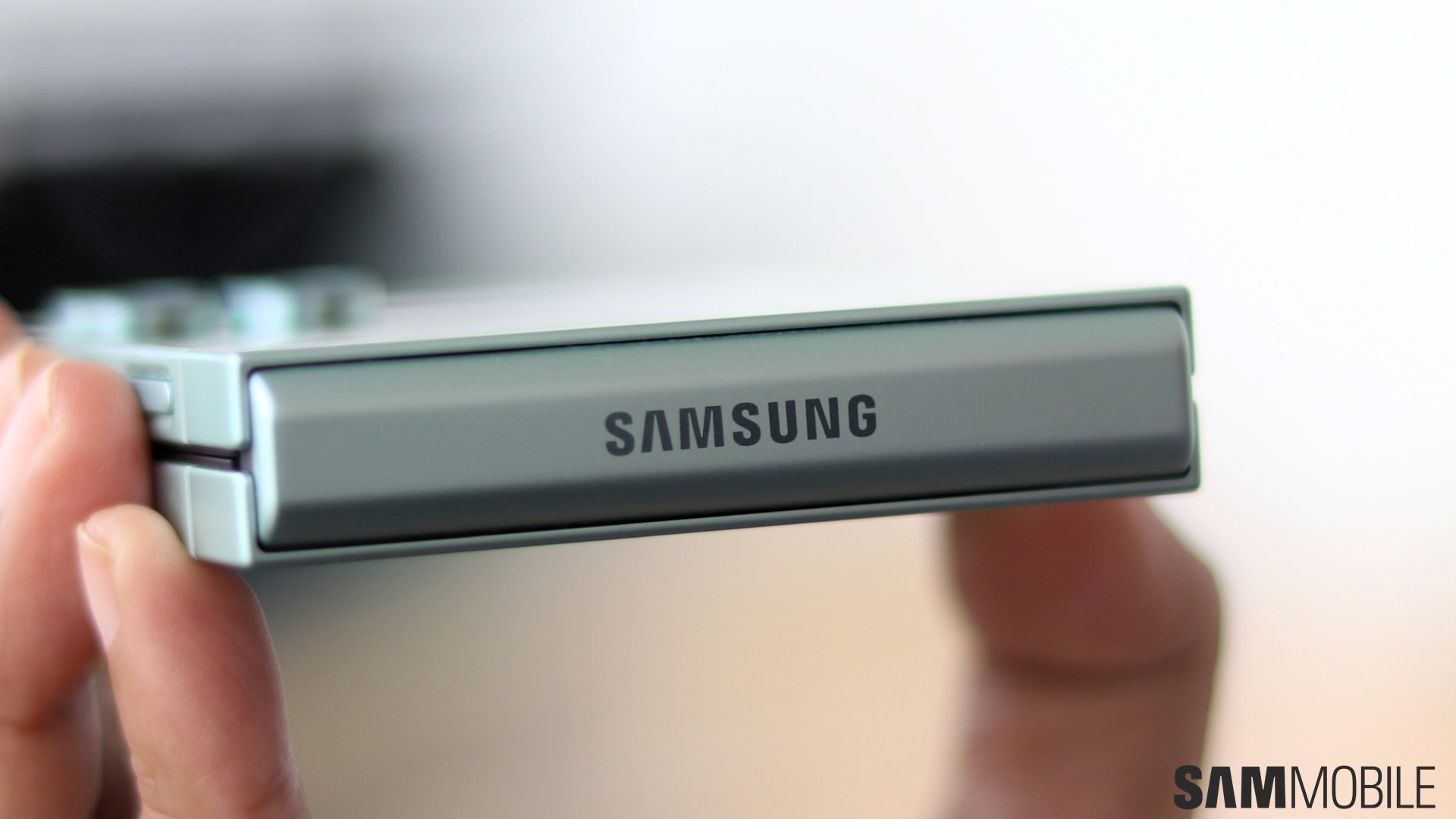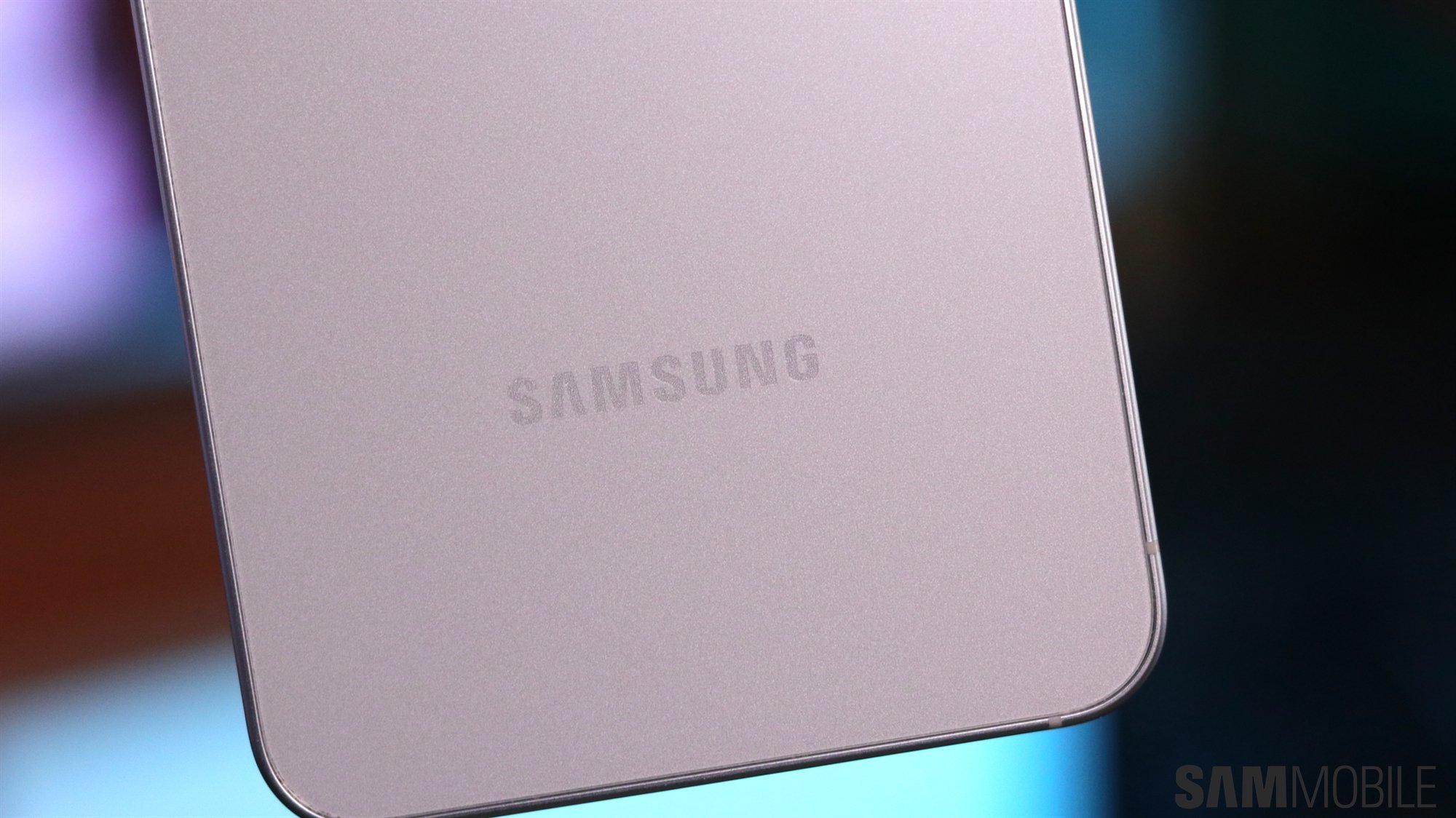
SDN offers centralized control management, making it easier to control distributed routers and switches in the network. It also offers various automation opportunities and real-time optimization, which increases the network speed and quality. At the same time, it also reduces network strain and maintenance cost.
Samsung's updated SDN solution can be installed on usual servers, and the number of servers can be freely adjusted depending on the network's traffic. It also offers a user-friendly software design which makes it easier for network operators to check important information such as the status of the installed equipment. It uses automation for end-to-end network slicing.

The company claims that its SDN's ‘Zero-Touch Operation' feature uses automation to minimizes user intervention. It can also recognize network equipment from various brands, set them up, and automatically sets up a bypass router when a piece of equipment fails. It also supports ONOS (Open Network Operating System), which has been proven fast and reliable.
Sohyong Chong, Senior Vice President and Head of Software R&D, Networks Business at Samsung Electronics., said, “Networks are becoming more agile with SDN technology in the 5G era. Samsung is proud to take part in this network evolution by offering a full lineup of SDN solutions and bringing more operational flexibility to 5G network management.”
Samsung was not a major player in the network equipment segment, but since various countries banned Huawei and ZTE, Samsung Networks quickly expanded its market presence worldwide. It offers end-to-end 5G solutions, including 5G core and radio, 5G vRAN, 5G antennas, 5G chipsets, and the required software.
















